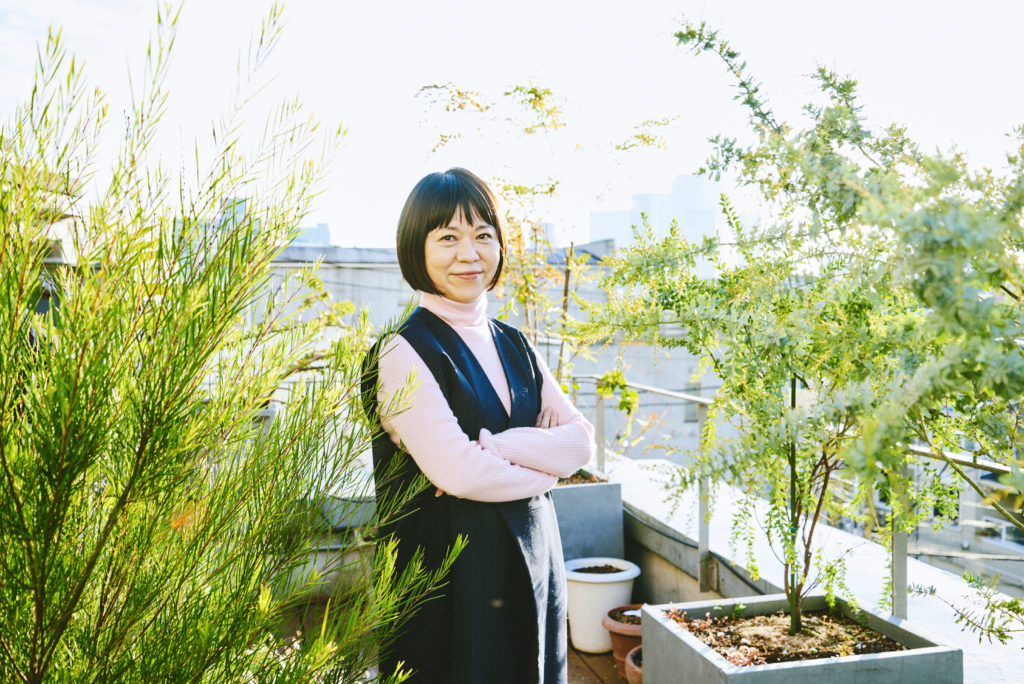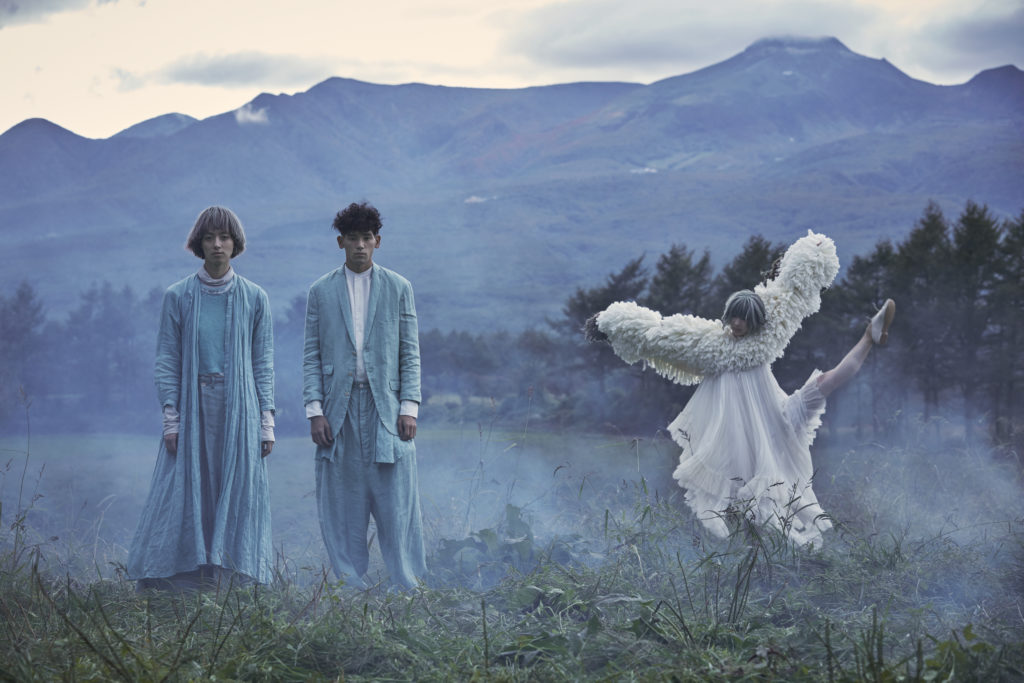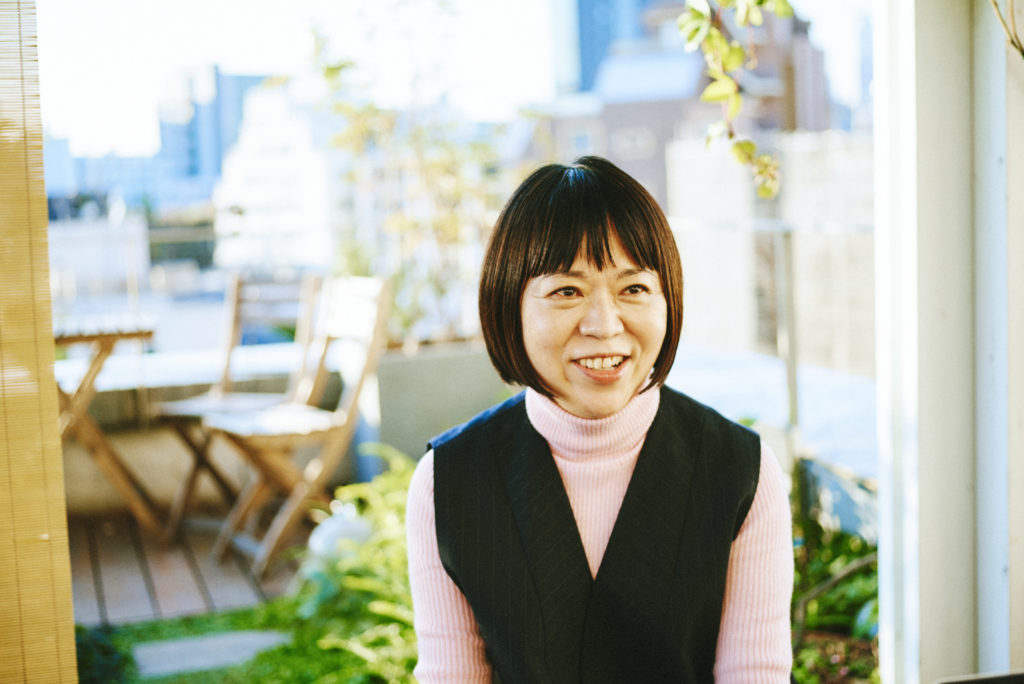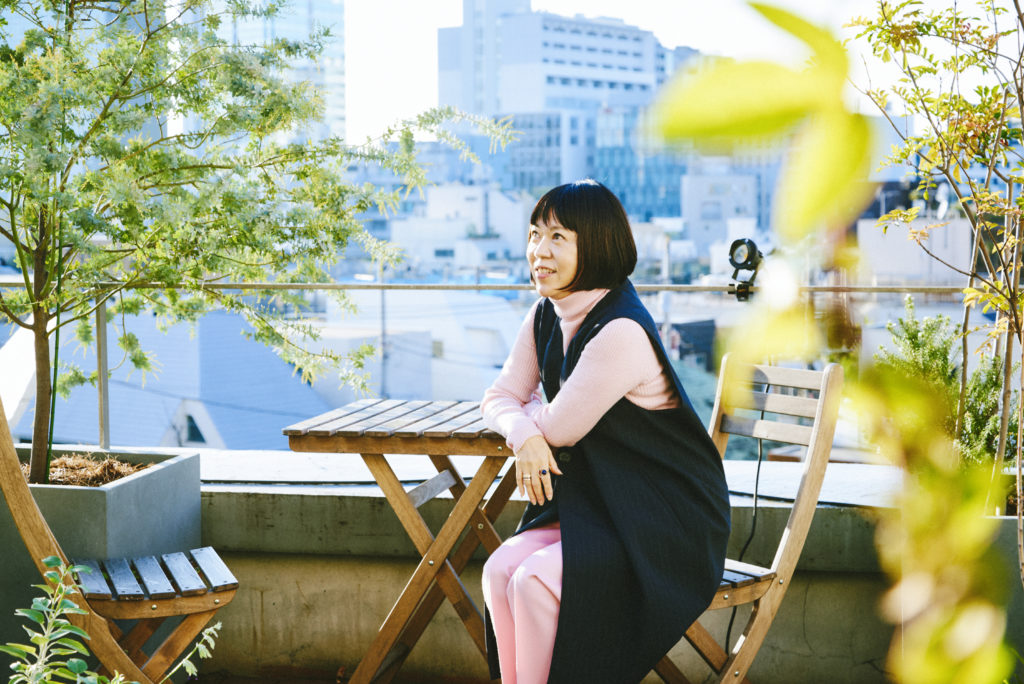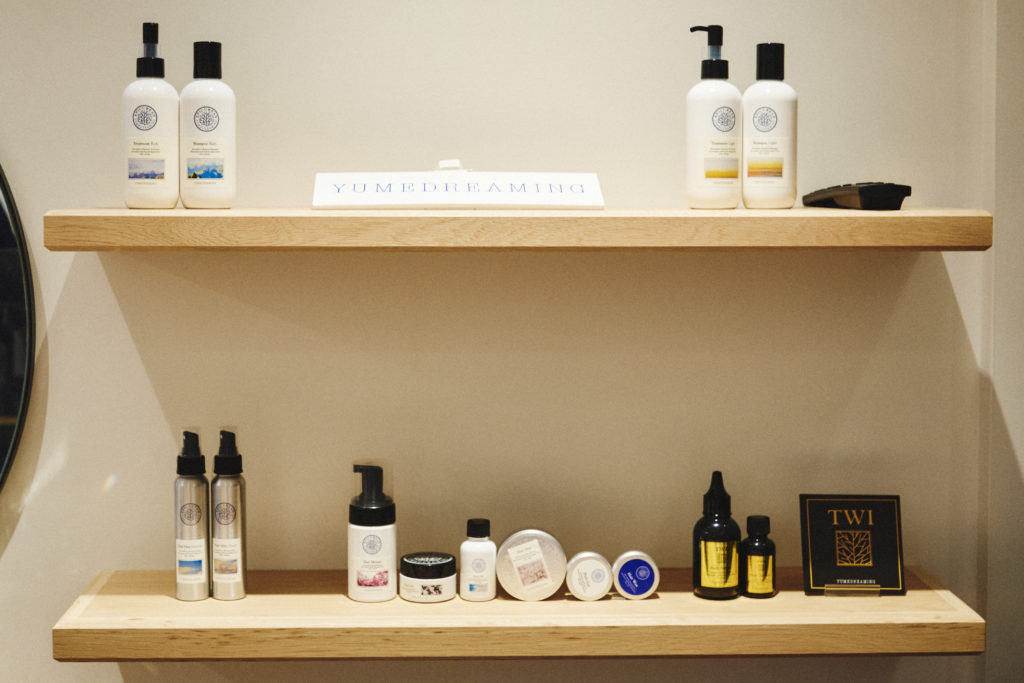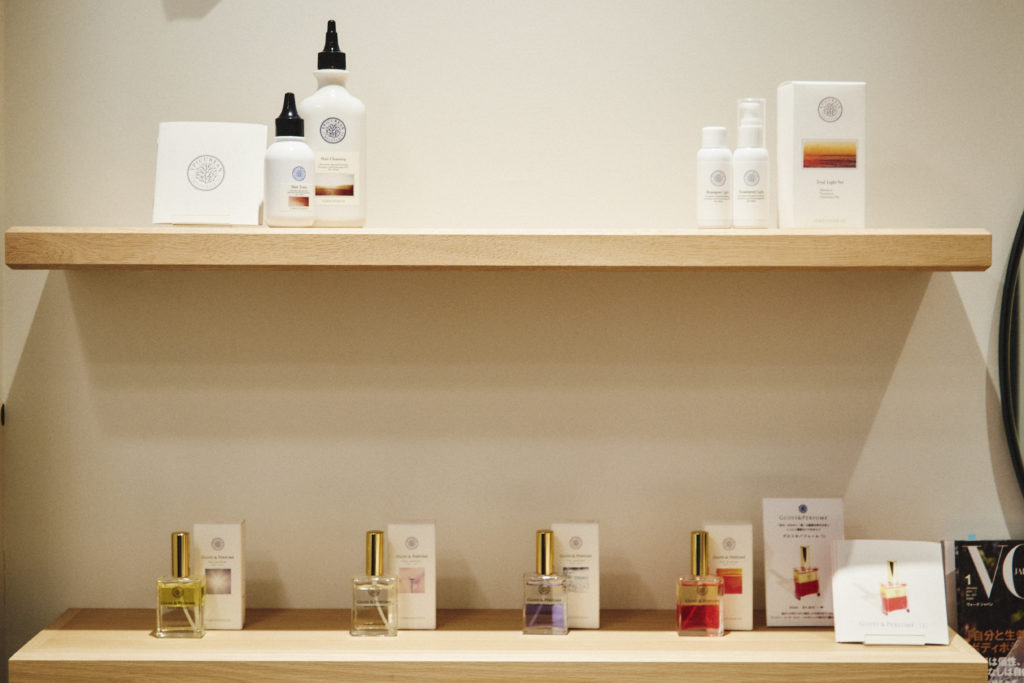Founded by acclaimed hairstylist and makeup artist Miho Matsuura, in an apartment room in Tokyo in 1990, TWIGGY. welcomed its 30th-anniversary last year. The hair salon industry has tumultuous ups and downs, but she stood her ground without compromise and is trusted by many models, actors, and cultural figures today. Matsuura even appeared on Jounetsu Tairiku last October, and her approach to hair design became a topic of conversation among viewers of the show. 2020 was a rocky year for the hair salon industry and Matsuura herself too. She had no choice but to close TWIGGY. for a short while. She ruminated on the meaning of hair salons during this time. We spoke to her about her views on the celebratory anniversary of TWIGGY.
——In 2020, TWIGGY. marked its 30th anniversary. How were those years in hindsight?
Miho Matsuura (Matsuura): A lot has happened, but there are three things I learned during these 30 years: to challenge oneself, never fear change, and introduce and connect people. I’ve done these things throughout the years. I’m not only talking about the business side when I say this. There’s joy in thinking like, “If this person and this person can connect, then something amazing and wholesome could happen.” I’ve always maintained the position that bringing people together with love leads to the future. Isn’t that the precise role of hair salons?
With the concept of value, some people prioritize material objects, while others put people first. For 30 years, I’ve never given up on putting people first. Sometimes, I was about to be dragged into some competitive beauty and hair salon drama, but my stance never wavered. I suppose that’s why I’ve been able to continue working.
After the Great East Japan Earthquake, more people related to what I was trying to do, which confirmed my mindset wasn’t wrong. Last year, I closed TWIGGY. for a while because of coronavirus. But it gave me the chance to reexamine my message and where I stand. I’m learning what my duty is. It feels like I’ve come full circle because TWIGGY. turned 30, and I turned 60. I’m excited about the next chapter.
——Has your ethos changed at all during the past 30 years?
Matsuura: The things I do keep on changing, but not my mindset. There’s something that’s been on my mind since I returned to Tokyo from London — we need to appreciate this “golden mean” mentality seen in the East. When I went to London in the late 80s, someone said, “Japan has a culture of imitating other things. You should take care of the things that make Japan original.” The question, “What is originality?” has been on my mind since I came back and started TWIGGY. The golden mean is very Eastern and very Japanese.
The world is so polarized right now, and I hear the word, division, a lot recently. Now is the time to look to moderate thinking. The golden mean doesn’t equate to half-baked ideas, however. The most important thing is to think for yourself. There’s so much information out there, and it’s easy to get swayed by others’ opinions. If you unwillingly get caught up in their words, you lose yourself.
There are many tricks of the trade to succeed in the industry. For hairstylists, it’s essential to take each customer seriously. It’s also vital to provide a hairstyle that matches their mood and appearance. I hope we’ll see more hair salons where the staff could carry that out while maintaining their unique vision.
——Thinking for yourself is indeed a necessity. Recently, there’s been an emphasis on things to be easily understood, so now we see more things that don’t require critical thinking.
Matsuura: If you take the easy route, it’ll come back to haunt you. If you think for yourself, you’ll find an answer that’s distinctly yours. If someone wants to take the easy route in life, then so be it, but kudos to those that go the other way. Until recently, it was punk to choose the not-so-simple option. But now, it seems like more people follow the easy way out. I would recommend people to take the middle road, instead of the comfortable one. I want them to have fun with that, and I’ll be by their side cheering them on.
There’s the saying, ご自愛ください [please take care of yourself]. Last July, I released a hair gloss and perfume called “i” (a play on the word, 愛 (ai), which means love in Japanese) from my line, YUMEDREAMING. If you ask, “What does self-care mean?” to 100 people, you’ll get 100 different interpretations. I don’t have the objective answer to the question, “What does it mean to love yourself?” It’s up to each person. For me, you need to affirm yourself with self-love, not be vain with narcissism.
Our life expectancy is longer now. So, once we reach our peak during our 20s and 30s, life becomes harsher in our 50s and 60s. The “work hard now, so you could take it easy once you’re old” mentality ended in the Heisei era (1989-2019). The Reiwa era (2019-) is about having fun until the day you die. You can live life to the fullest that way.
Regarding my career, I reckon it’s imperative to hand my knowledge down to others. Doing something, instead of just knowingsomething, will guide you to the future. So, I want to teach people what I’ve experienced in my life.
Stars are born naturally, not forcefully made
——In the 90s, there were many trends in the hairdressing industry, like hairstylist stars. Even among that, TWIGGY. wasn’t influenced by such trends. You’ve kept your ground.
Matsuura: When the “charisma hairstylist” craze was happening, I got an offer from the TV show Scissors League. But as someone who focused on working on their small hair salon, becoming famous wasn’t my top priority. Putting the hair salon staff and the customers’ happiness at the center was more meaningful. It’s my understanding that stars should be born naturally, not forcefully made. I’m glad I didn’t get carried away (laughs). I knew it would be bad news to get cocky from becoming a famous, of-the-moment hairstylist.
There’s no point in fighting over who’s better than who in the industry. What makes a suitable hairstyle depends on the hairstylist, and that’s fine. This variation makes us all human. I’ve always wondered why everything’s about winning or losing. As long as that’s a factor, people will compare themselves to one another. If we could stop worrying about that, then we could all march to the beat of our individual drums. Aren’t hairstyle trends something that should be discovered and created instead of chased?
——When the haircare brand Aveda came to Japan in 2003, you became the artistic director. You incorporated organic products and the philosophy surrounding them right away. Organic consciousness has become more common over the past ten years, but how did you initially become interested in it?
Matsuura: The catalyst was when I befriended someone called Nadia back when I was studying in London. She knew a lot about Western herbs, but she was also studying Eastern medicine. I thought, “I can’t believe an Italian person living in London knows more about Eastern medicine than Japanese people.” And so, once I came back to Japan, I started learning about Eastern medicine. I’ve studied and tried out breathing exercises, Ayurveda, acupuncture, and traditional Chinese medicine for 30 years.
When I gave birth to my child 32 years ago, I started speculating about the future. That was big too. I realized, “Beauty should be holistic!” That was when I made the connection between beauty and health.
——What are your views regarding the attention sustainability in fashion and beauty has been getting recently?
Matsuura: I believe sustainability has become popular because the world is becoming a better place. That’s why we’ve been talking about this over the years. The idea of something becoming trendy isn’t inherently wrong; I just hope people would seriously study it and gain experience. It’s alright to aim for a sustainable lifestyle if you’re enjoying the process. But it’s no good if it’s stressful. Stopping and considering other alternatives is necessary if that lifestyle isn’t for you, even if you think it’s the right way. If you become sick after sacrificing yourself for the environment, then that’s unsustainable after all.
Sustainability is a cycle, so you first have to create a good cycle for yourself. You can’t confidently say what you’re doing is the right thing if your very own cycle is bad. Yes, putting it into practice is useful, but you have to listen to your heart too. It’s hard, but you have to stop and think each step of the way. Try to reexamine yourself at least once a year. By doing that, you can take care of yourself, and by extension, you can also take another look at the environment.
——Has your hair salon changed because of the pandemic?
Matsuura: It was closed from April 6th, one day before the government made an emergency announcement, to April 19th. That’s because I had to look into coronavirus. When the salon was closed, I got some information from doctors I knew personally and figured out what I should do. As a hair salon owner, it’s imperative to have resources that could help you make decisions. It doesn’t matter what other hair salons are doing because you have to decide how you’re going to run your salon.
After reopening TWIGGY., we started with having less than half of our usual customers. From fall, we’ve had around 80% of our regular clientele. Medical fields, like hospitals, and beauty and hair salons, should communicate with one another to a certain degree. Upcoming hairstylists should have a certain amount of medical knowledge. And they should incorporate holistic elements and experiences.
30 years went by in the blink of an eye
——Moving onto the next topic, let’s talk about your original brand, YUMEDREAMING. You founded it in 2011, and now the brand carries an impressive lineup.
Matsuura: The lineup is diverse, but I only put out hair-related products. Because I’m a hairstylist, I thought I should specialize in hair and do something only I could do. I also make it a point to use domestic ingredients. Typically, people might try to produce skin care products and what not to gain more profits, but I’m at a period where I have to stop and consider what a hairstylist can do. We don’t need more material things.
——Lastly, could you talk about your hopes for the future?
Matsuura: I want to survive. And I want to have fun, little by little every year. If this year is a bit more fun than last year, great. And if I’ve grown a little more than last year, that’s great too.
I don’t have a 3-year or 5-year plan. TWIGGY. started in an apartment room 30 years ago, and because I challenged myself by having fun with no goal in mind, the years went by in the blink of an eye. I was serious about having fun (laughs). Things will work out, so I hope young people could challenge themselves in a fun way and live their life.
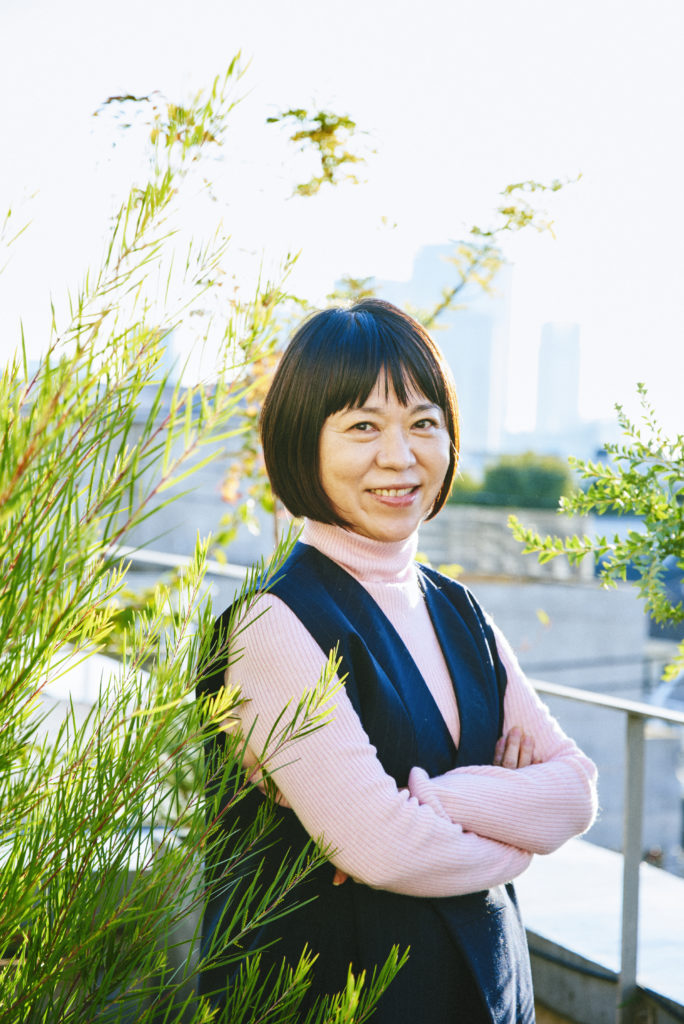
Miho Matsuura
Miho Matsuura is a hairstylist and the owner of TWIGGY. After becoming a beautician and hair and makeup artist, she went to the U.K. in 1988. After her return in 1990, she founded TWIGGY. On top of her hair salon, she works as a hair artist across many fields such as magazines, advertisements, and TV shows. When Aveda launched in Japan in 2003, she became the artistic director and gave product development and hairstyle advice for five years. Miho Matsuura averted her attention to the natural healing powers that humans possess. She then established YUMEDREAMING EPICUREAN, a haircare line made with domestic ingredients, in 2011, and TWI in 2016. Her focus is on adding radical elements into organic-oriented lifestyles, and she aims to bring forth beauty, health, fashion, and hairstyles that match each individual. She started an organic café alongside the hair salon, and in 2018, the salon switched to complete renewable energy. She then opened the gallery space, Flat101, on the second floor of the salon in 2019. With “sustainable” as the theme, she holds many events there. She continues to grow her horizons with health, beauty, and the environment at the center.
https://www.instagram.com/twiggy.miho/
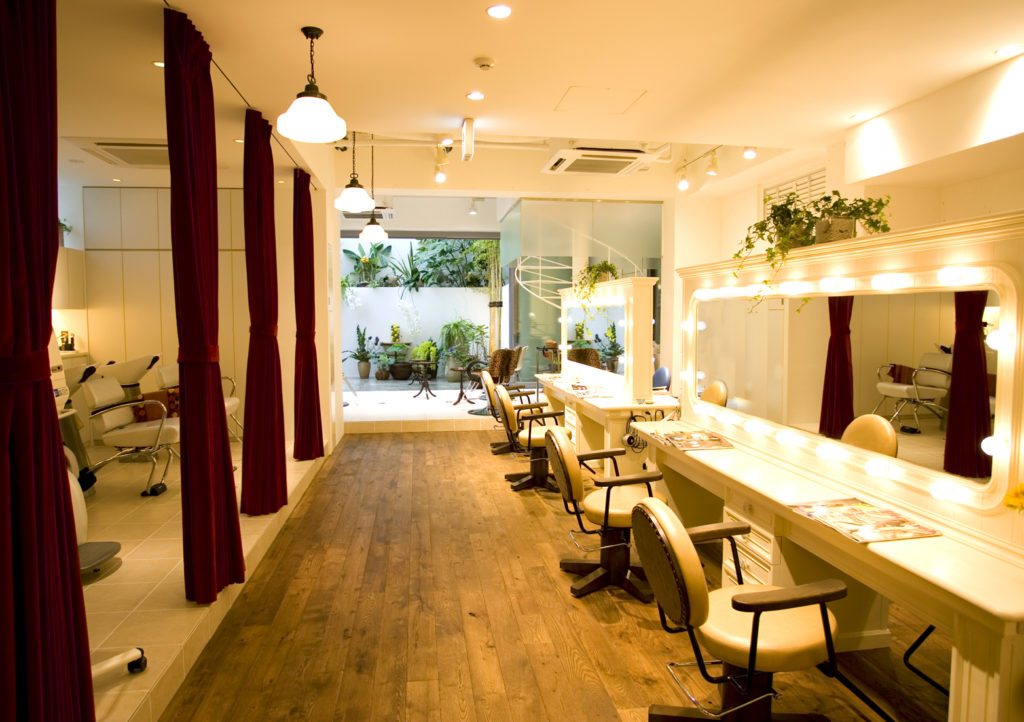
TWIGGY.
Address: Jingumae, Shibuya-ku, Tokyo 3-35-7
Opening hours: Monday and Thursday- 10 AM to 7 PM, Wednesday and Friday- 11 AM to 8 PM, Saturday- 11 AM to 7 PM, Sunday and Public Holidays- 10 AM to 6 PM
Holidays: Tuesday
Phone: 03-6413-1590
https://twiggy.co.jp
https://www.instagram.com/twiggytokyo/?hl=ja
https://www.instagram.com/yumedreaming/?hl=ja
Photography Hironori Sakunaga
Translation Lena Grace Suda

